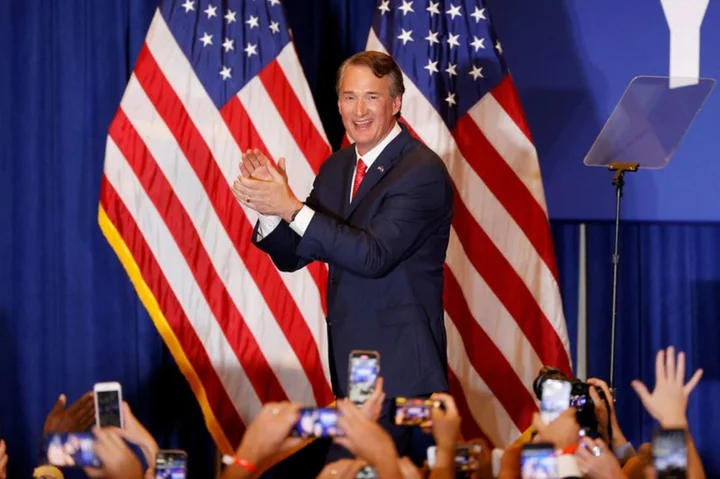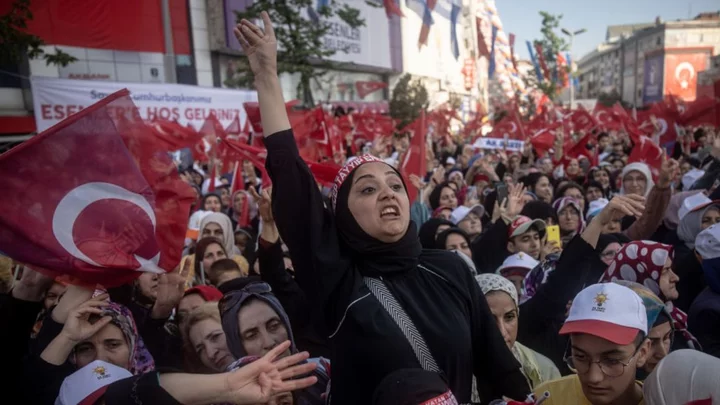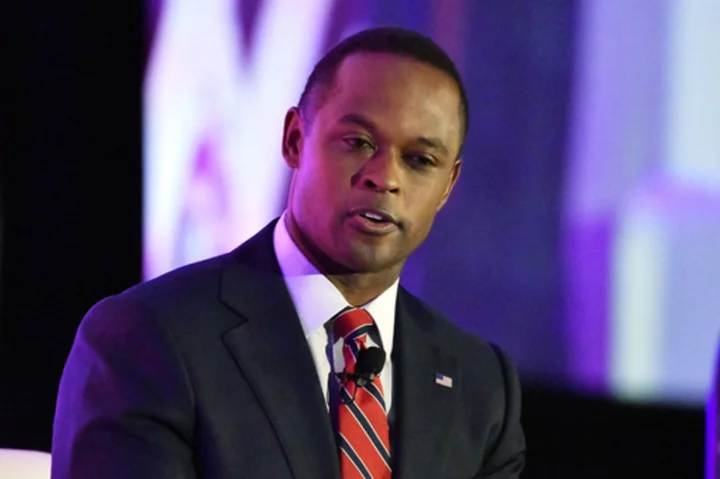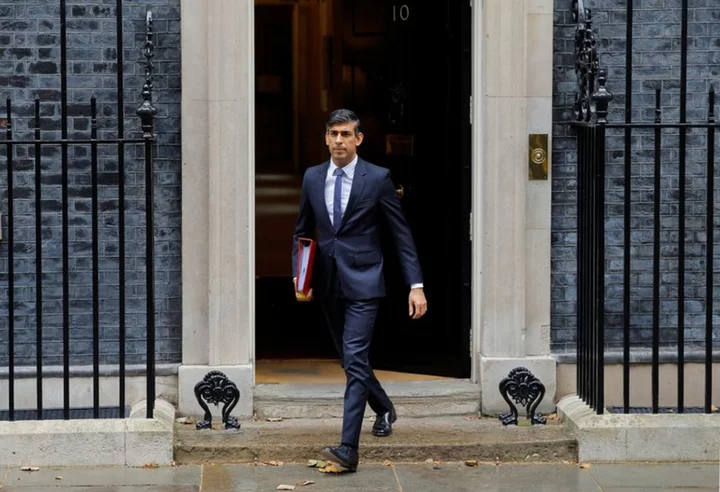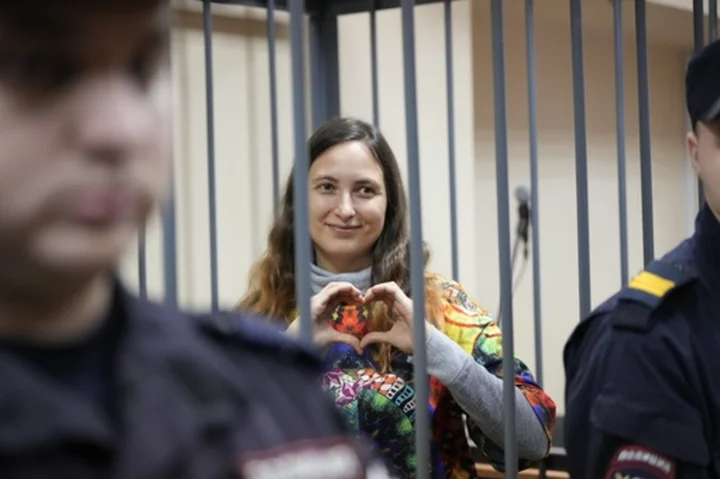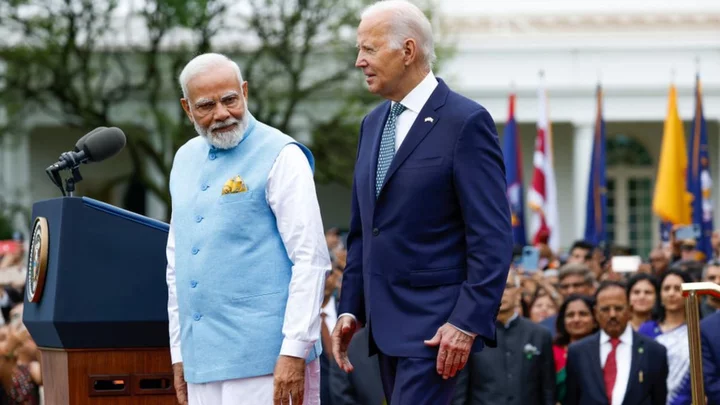By Joseph Ax
Virginia Governor Glenn Youngkin has been crisscrossing the state ahead of November's legislative elections with a central message for Republicans: Vote early.
That exhortation is a far cry from what voters have heard since 2020 from former President Donald Trump, who continues to claim falsely that mail and absentee ballots are rampant with fraud.
But after losing the White House in 2020 and failing to capture the U.S. Senate last year, Republican leaders in Virginia and nationally are promoting early voting in the run-up to the state's Nov. 7 election - and with an eye toward 2024, when the presidency and control of Congress will be at stake.
Trump remains the frontrunner for the Republican presidential nomination despite a litany of legal troubles, and Republican lawmakers across the country have pushed new voting restrictions in the wake of his false allegations. That could make it difficult for the party to deliver a coherent message on early voting.
The Virginia elections will show whether Republican voters are listening.
Youngkin's political action committee, Spirit of Virginia, has invested a seven-figure sum in the early voting push, advisers said, working in partnership with Republican legislative leaders and the Republican State Leadership Committee, the party's national group dedicated to supporting state-level candidates.
His "Secure Your Vote" bus tour has taken him to every corner of the state, where he has warned Republicans that failing to take advantage of early voting, either by mail or in person, cedes ground to Democrats.
"For those of you who haven't voted early, shame on you," Youngkin said at a Monday rally in Henrico County, an area with several competitive races. "Go vote!"
Meanwhile, the Republican National Committee (RNC) launched a 2024 initiative called "Bank Your Vote" earlier this year. The program encourages early voting and even vows to use "ballot harvesting" where legal – a derisive term Republicans have employed to criticize the practice by which groups collect and return multiple ballots on behalf of voters.
In an advertisement that aired during the first Republican presidential debate in August, RNC Chairwoman Ronna McDaniel said into the camera: "When Republicans vote early, we win."
For his part, Trump has sent mixed signals. He is urging his supporters to vote early and "harvest" ballots in order to "beat the Democrats at their own game," as his campaign put it in one fundraising email, while insisting that mail-in voting is rigged.
"I will secure our elections, and our goal will be one-day voting with paper ballots and voter ID," Trump told a campaign rally in Iowa last week. "But until then, Republicans have to compete and we have to win."
Absentee and mail voting were more widely adopted during the coronavirus pandemic, as election officials sought ways to allow people to cast ballots more safely.
With Trump railing against the practice, Democrats have increased their edge in early voting.
In 2018, Democrats accounted for 41% of early votes in the 24 states that provide partisan data, compared to 35.1% for Republicans, according to the U.S. Elections Project at the University of Florida. In 2022, that gap widened, with Democrats accounting for 42.5% of early ballots and Republicans 33.8%.
Banking early votes not only ensures those ballots will count – eliminating the risk that voters might skip Election Day due to bad weather or other issues – but allows campaigns to devote resources more efficiently by targeting supporters they know have not yet voted.
TOO CLOSE TO CALL
Both Virginia legislative chambers are up for grabs next month. Democrats currently hold a narrow majority in the state Senate, and Republicans have a similarly slim majority in the state House of Delegates.
A Republican sweep would pave the way for Youngkin to enact his agenda, including a 15-week abortion limit. But it could also validate his push for early voting in a state that allows ballots to be cast up to 45 days before Election Day, among the most expansive of any state.
Republicans and Democrats agree his investment has already paid some dividends.
In a briefing with reporters last week hosted by the Democratic Legislative Campaign Committee, the party's campaign arm for legislative candidates, officials said the early vote data in Virginia points to an extremely close election.
Tom Bonier, who runs the Democratic polling and data firm TargetSmart, said Republican turnout is higher in swing districts than in 2021 or 2022, likely due to Youngkin's push.
"Republicans have invested millions of dollars, and they are showing some gains from that," Bonier said.
Democratic turnout is also matching or exceeding the levels from 2021 and 2022, according to Bonier. He said the vast majority of Republican ballots appear to be from "super" voters – those who can be counted on to vote in every election.
But Youngkin advisers said their data showed the early vote campaign had brought in ballots from low-propensity voters as well. And they cautioned that Republicans, who historically turn out in greater numbers on Election Day, do not need to equal Democratic early vote numbers to be competitive.
"By every indication, we are hitting the mark – driving Republican turnout in early voting and bringing Republicans who typically just vote in presidential or gubernatorial elections off the sidelines and in the game to win this election," Dave Rexrode, a senior Youngkin adviser, said in a statement.
(Reporting by Joseph Ax; Additional reporting by Nathan Layne; Editing by Colleen Jenkins and Deepa Babington)

